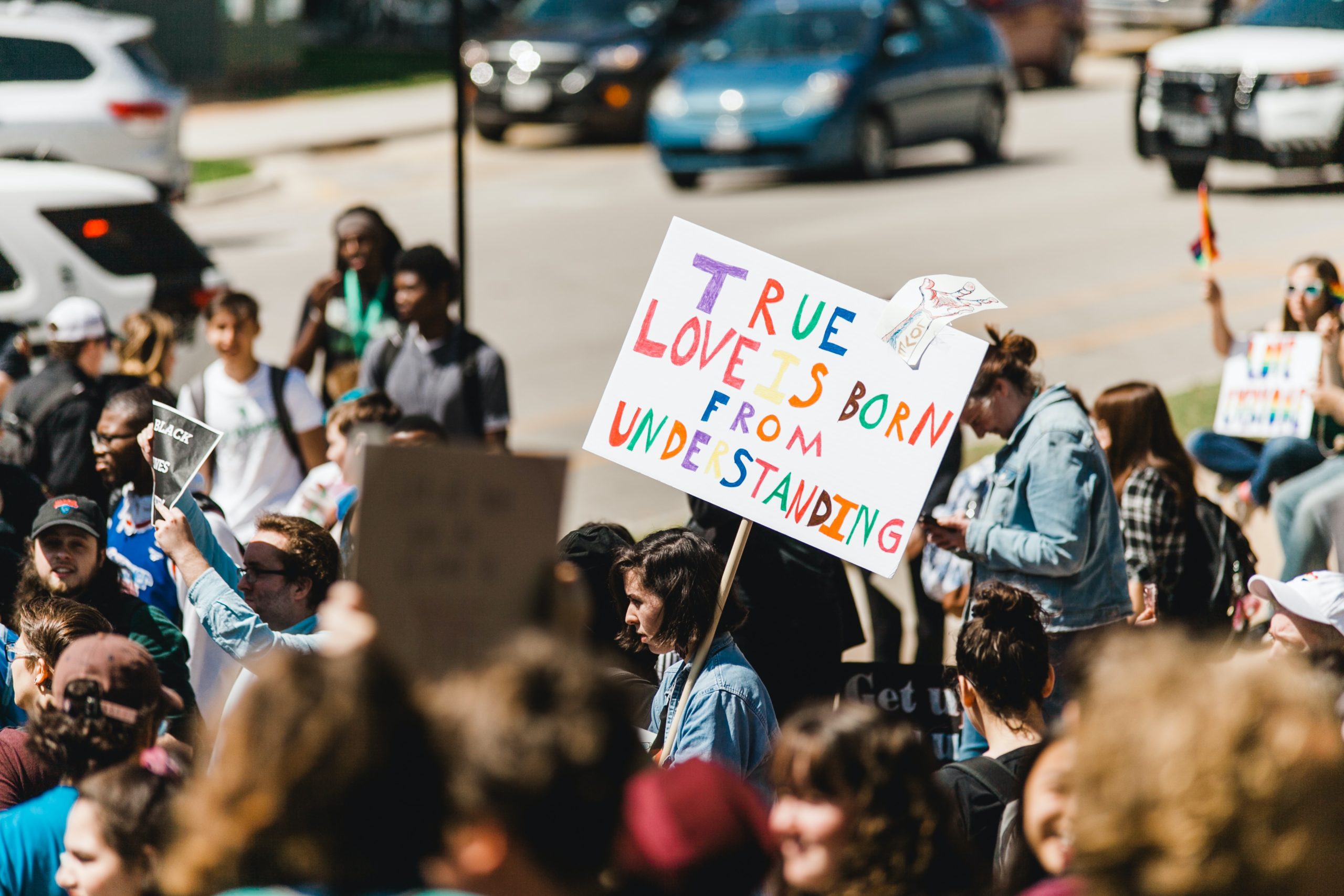Contents
Jump To:
Celebrating Pride and Dismantling Opression
It shocked me when I recently realized the protests for George Floyd happened one year ago. On those hot summer days, I’d leave my house and join my unmasked neighbors in the streets. Although many were uncertain about the safety of protesting with COVID circulating through our air, one thing was certain: oppression of black lives had to stop.
Throughout the year I have often found myself wondering about “oppression.” White supremacy, patriarchy (including psychological patriarchy) and privilege all play a major role in why movements like #BLM and seasons like Pride are necessary to continue the deconstruction of oppression.
I recall sitting on the zebra-print sofa in my therapist’s office as she described the way patriarchy played a role in denegrating both woman and queer people. But what really got me was how she began to describe the subconscious ways I participated in patriarchy. She highlighted that my internal messages like “I am a broken man” were messages of internalized patriarchy.
Psychological Patriarchy
She taught me that messages stemming from patriarchy that influenced and altered my self-understanding were the effect of psychological patriarchy. I was allowing psychological patriarchy to run its course through my thought processes. Psychological patriarchy was not something external to me—it was a cultural statue established within me. It was the small, subconscious ways I had believed in patriarchy that grew into perceptions of inferiority and beliefs that white men were better than me.
Sadly, we internalize the messages of our oppressors in many ways. Perhaps it’s internalized homophobia, psychological patriarchy, or internalized transphobia. No matter what it might be for our unique circumstances, if oppression is strong enough, it will contribute to the way we assemble our worldview, organize our self-understanding, and influence the ways we present ourselves.
Celebrating Pride and Dismantling Oppression
In my mind, celebrating Pride is not just about spending a month sporting rainbow gear and having a fun weekend with lots of dancing and parties. Pride is a time to be mindful of the ways in which oppression has affected not only my self-understanding, but also the ways in which I refer to other people of color, even if in the silent, judgmental pockets of my mind.
To honor the history of Pride, I find that I must also honor my history of oppression. I want to take the time to identify and dismantle the messages of internalized homophobia that make me want to filter PDA, the biphobia that makes me wonder if I’d be more happy with a female partner, the psychological patriarchy that leaves me feeling bottom shamed, and the transphobia that dilutes my enby (non-binary) fierceness.
Although Pride is mostly a time of much-deserved celebration, I can’t help but remember that Pride was and is really about standing in the streets with other queer neighbors as we make our presence known. Our visible presence is, in and of itself, a way to fight oppression. Our public demonstrations of authenticity are a way to take up equal space in a world that is growing to love us more and more.
Pride isn’t a time just to tackle trans/bi/homophobia. It is a time for tearing down oppression in general.
Celebrate and Stand United
So as you paint your face in rainbow colors, don colorful outfits, and embrace your authenticity during Pride, remember that you are also fighting for #BLM. United we stand, divided we fall.
Thankfully, our cultural statues—like patriarchy and homophobia—have easily dissolvable clay feet.


